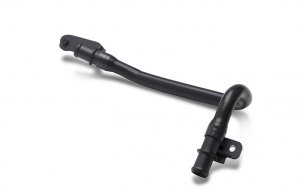
Solvay launches Ryton PPS extrusion grades
UK based Super Absorbent Fibre (SAF) manufacturer Technical Absorbents Ltd (TAL) has developed a new fabric technology which is said to keep wearers of heavy outer clothing cool even when working in the most challenging environments.

10th July 2012
Innovation in Textiles
|
Grimsby
UK based Super Absorbent Fibre (SAF) manufacturer Technical Absorbents Ltd (TAL) has developed a new fabric technology which is said to keep wearers of heavy outer clothing cool even when working in the most challenging environments.
The company’s patent pending KoolSorb, which is aimed at the Personal Protective Equipment (PPE) sector, will be unveiled at the Emergency Services Show which takes place in Coventry, UK from 21-22 November 2012.
The personal protection of those serving in the emergency services is of paramount importance and to help achieve this, having the correct clothing is critical, TAL says.

KoolSAF (the product brand of SAF aimed specifically at the coolant apparel market) is the basis for a range of functional and durable fabrics that offer significant advancements in reducing wearer heat-stress and fatigue – while providing increased comfort and performance capabilities. KoolSorb is one example of this, and initial prototype tabards have already been trialled by instructors at Lincolnshire Fire & Rescue.
“The main objective of KoolSorb was to create a washable coolant fabric using KoolSAF,” explains TAL Business Development Manager Dave Hill.
“This coupled with the challenge of creating coolant undergarments that don’t rely on evaporation to activate the cooling process, has been tough. However, the end result and feedback to date have been extremely positive, and we are now moving towards final fabric production.”
“KoolSorb can be converted into a wide range of garments which are worn next to the skin under heavy clothing. The fabric stimulates the dissipation of heat and moisture through the rapid absorption and containment of body sweat.”
“The material in touch with the skin remains relatively dry and conducts heat away from the hot areas of the body. This results in a cooling effect of up to 6°C for the wearer – directly reducing the risk of heat-stress. Garments made using this technology can also be laundered multiple times which is an important factor.”
“We are looking to bring to the Emergency Services Show a range of prototype garments to demonstrate what is possible - for example, undergarments for the torso and head, that can all be worn under existing outer PPE. We hope to meet with people who are looking for innovative, yet functional new technologies.”

Business intelligence for the fibre, textiles and apparel industries: technologies, innovations, markets, investments, trade policy, sourcing, strategy...
Find out more